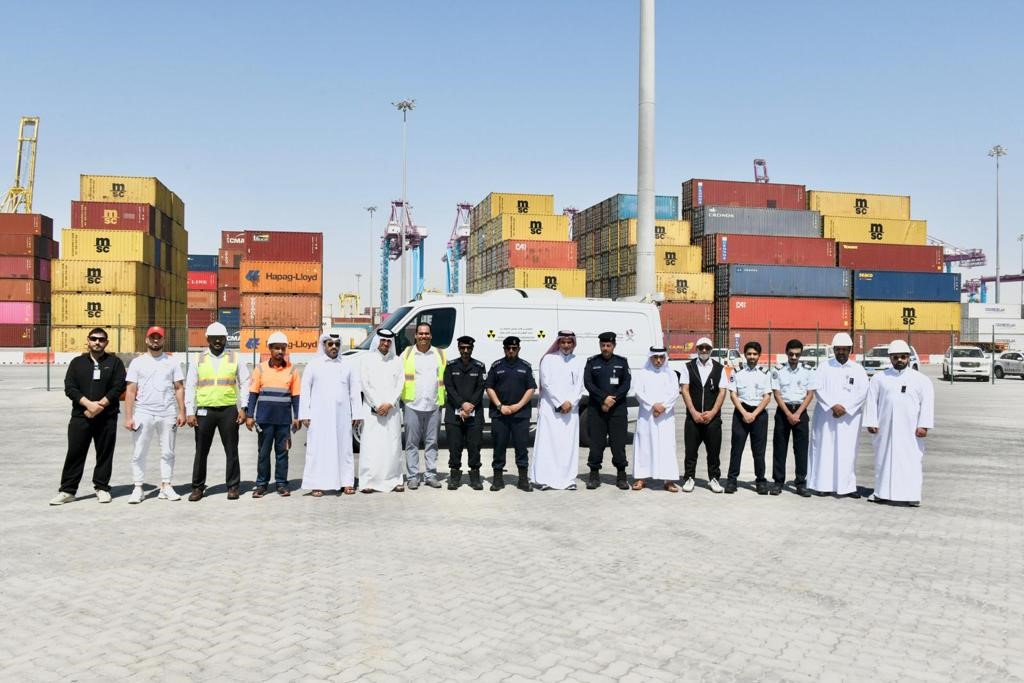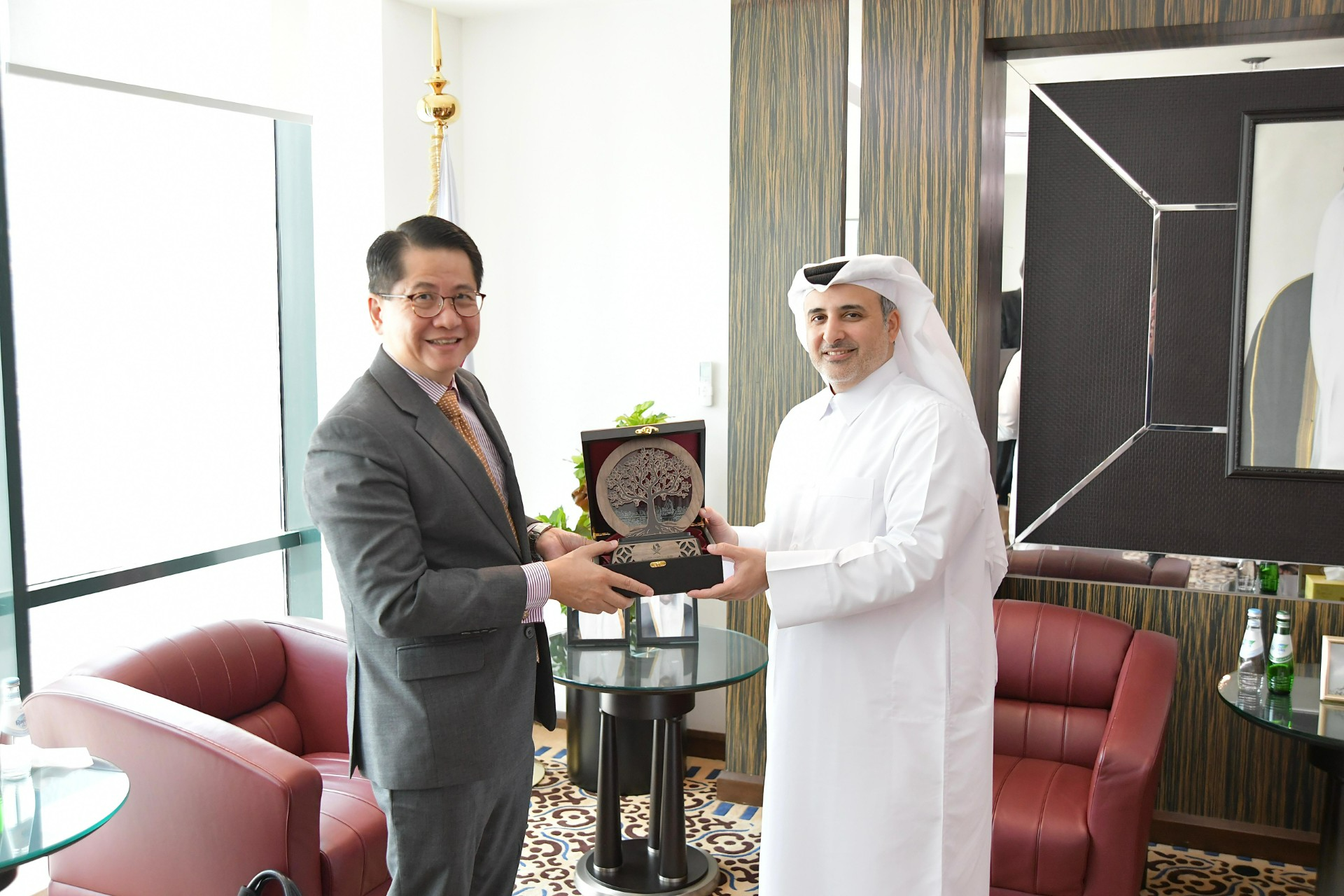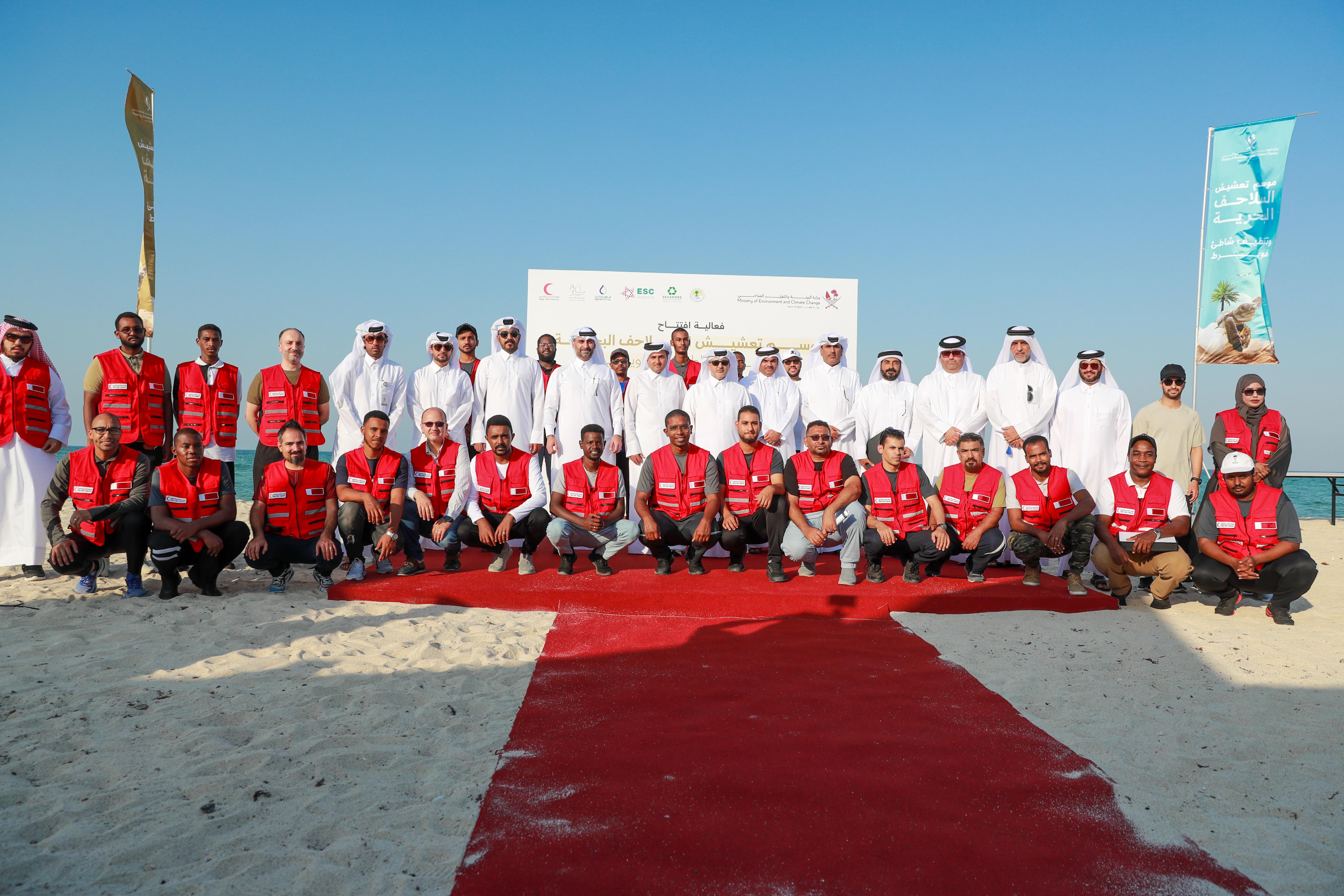
In preparation for any emergency situations, a training exercise was conducted by the Ministry of Environment and Climate Change to detect radioactive materials at border checkpoints
The Radiation Control Department at the Ministry of Environment and Climate Change organized a practical exercise and scenario to detect radioactive materials at the country’s border crossings. This is aimed at ensuring the readiness and preparedness of specialized teams from all relevant authorities for radiation and nuclear emergency situations.
Mr. Abdulhadi Nasser Al-Marri, the Assistant Undersecretary for Environmental Affairs at the Ministry of Environment and Climate Change, attended the exercise, along with several officials from the relevant authorities at Hamad Port.
In this context, Engineer Abdulrahman Al-Abduljabbar, Director of the Radiation Control Department at the Ministry of Environment and Climate Change, indicated that the exercise met the international standards of the Atomic Energy Agency. He affirmed the readiness and preparedness of the Ministry of Environment and Climate Change, represented by the Radiation Control Department and other national entities, to deal with such cases. He pointed out that the ministry is keen on organizing continuous training courses for all its staff to ensure professionalism in their work. This contributes to enhancing capabilities during the meticulous inspection process of all imported shipments entering the state of Qatar, and it strengthens and increases the efficiency of supervisory work across the border crossings.
On his part, Engineer Rashid Saud Al-Shahwani, the nuclear engineering expert at the Ministry of Environment and Climate Change, affirmed that this training is part of the ministry’s plan to monitor radioactive materials at the country’s entry points. The aim is to train its staff to enhance their capabilities through scientific and technical experiences, thereby contributing to increasing professionalism in methods of detecting concealed radioactive sources, as well as collecting and examining samples.
Engineer Al-Shahwani also highlighted that the training took the form of a scenario to detect certain imported materials suspected of containing radioactive substances through the country’s various border entry points, whether by air, land, or sea. He noted that the training included the use of the latest detection devices for such materials, equipment for decontamination from radiation pollution, as well as the optimal use of mobile radiation laboratories. These labs are equipped with advanced radiation monitoring and analysis devices, in addition to satellite communication devices and GPS systems.


